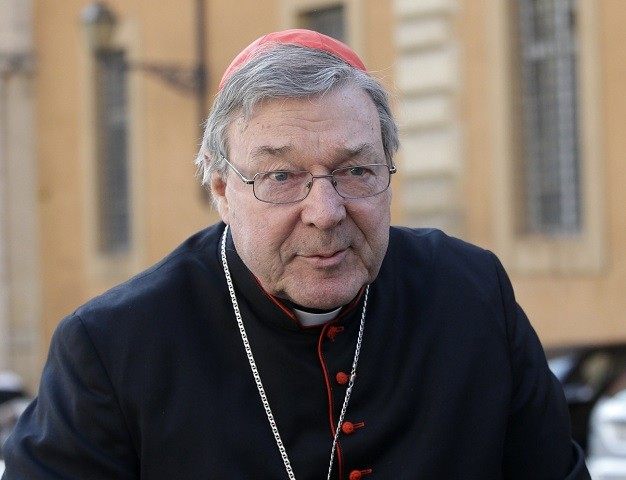ROME, Italy– With his usual candor, Australian Cardinal George Pell, the Vatican’s financial czar, spoke Thursday of the future of Christianity in the United States, Europe, and China–noting that Christianity is already spreading like wildfire in China just as it did “in the old pagan Roman Empire” two thousand years ago.
Cardinal Pell spoke before a full house at the Pontifical North American College in Rome, after receiving the 2015 “Rector’s Award.”
Pell suggested that Christianity might have a unique opportunity to influence the future of China, given an openness on the part of certain elements within Chinese leadership to “doctrines which are compatible with the free market, reason, and scientific progress.”
If the present trends continue, the Cardinal said, “China would have a larger Christian population at the end of this century than any other country.” This trend presents “a marvelous opportunity” for Christians, he said, “and a potential benefit for international cooperation.”
“I even dream of a Chinese equivalent of Constantine, the first Christian Roman Emperor, with his Chinese government backing Christianity as the best bet to maintain and improve the moral health of Chinese culture,” he said.
Pell’s view of Christianity in Europe, on the other hand, was not nearly so sanguine. “If China is a land of opportunity religiously, Europe today has another story,” he said.
Though no one doubts the vitality of the Europe that remains Christian, Pell suggested, “Catholic Europe is not what it was as a religious, political, or intellectual contributor,” and it is unlikely to recover any time soon.
“History brings surprises,” he said, “but it is likely that if the Catholic Church in North America does not fill this gap, no other national community will.”
The twentieth century, and especially its second half, “deserves to be known as the American century” because of its economic, cultural, and military dominance, and its ability to stand up to challenges from Germany, Japan, and Russia, and from Nazism and Fascism, he said.
“My hunch is that if any one power is to predominate in this twenty-first century, it will again be the USA,” he said.
Pell had high praise for the U.S. bishops, asserting that “more than in any other Western country” they have realized that Pope John Paul II was right: “that the Church prospers best when it follows the Maker’s instructions, when it is faithful to the gospel as lived out in the Catholic tradition,” including the tough issues.
“It might be counterintuitive for many,” he said, “but it is important to realize that abandoning hard teachings on forgiveness, on regular worship and prayer, on life, marriage and sexuality does not bring growth.”
“In fact,” he continued, “a radical liberalism is destructive, sometimes of whole churches, as we have seen in Quebec, Holland, Belgium. The hierarchy in the United States realizes this.”
The Cardinal also suggested that the Catholic Church in the United States is uniquely situated to influence the world in the coming century because of its alliance with evangelical Christians.
“Both the USA and Australia are democracies and in both countries Catholics are around one quarter of the population,” he said. “Minorities need allies for majority approval, which are more available in the USA through the ‘Bible Belt’ than in Australia.”
With candidates for president beginning to emerge in the American public eye, Pell had a word for the responsibility of religious people to be politically involved.
“I believe,” he said, “that Catholics have a right and a duty to participate in public life, to campaign strongly for social justice, religious freedom, and respect for life.”
“I am not urging the creation of Catholic parties; not urging support for one or other of the main political traditions. This is a matter of personal choice; personal priorities as individuals articulate their foundational Christian convictions,” he said.
Yet Pell did propose that “Catholics in the United States will be called more and more to provide intellectual leadership in this twenty-first century.”
“For some decades we have been passing through a time of revolutionary social change which is costing governments a fortune, damaging women and children, and wrecking many families, especially among the less wealthy,” he said.
“This tradition of academic excellence and pastoral relevance is already well established in your country, much aided by the conversion of many Protestant intellectuals,” he asserted.
“I thank God for this and pray it continues and develops.”
Follow Thomas D. Williams on Twitter @tdwilliamsrome.

COMMENTS
Please let us know if you're having issues with commenting.